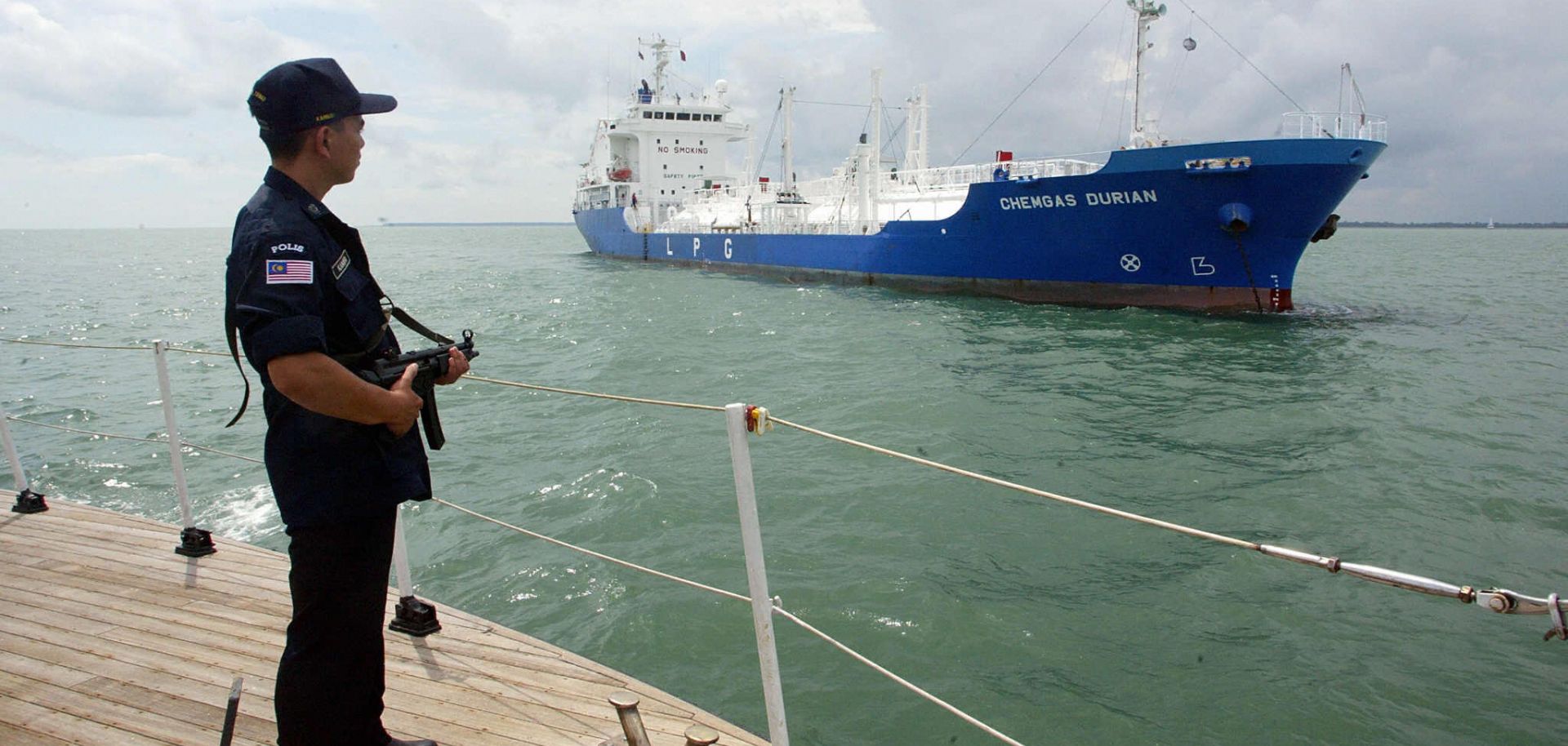
The Strait of Malacca, which is divided among Malaysia, Indonesia and Singapore, is the center of gravity for Asia-Pacific trade routes, providing passage from the Indian Ocean into the Pacific through the archipelago. But Malacca is not the only point of transit for vessels; it is simply the most important. A few hundred miles away is a region with particularly high maritime security threats: the tri-border area encompassing the Celebes and Sulu seas as well as the surrounding coastal areas. This area has been particularly hard to govern, in part because it lies at the confluence of territories controlled by Malaysia, Indonesia and the Philippines.
The amount of global trade passing through the tri-border area is significantly lower than the amount passing through the Strait of Malacca, but it is nonetheless substantial. In 2015, more than 100,000 ships and 18 million passengers passed through the Celebes and Sulu seas, with a cargo value of around $40 billion. Trade among the tri-border states is also growing. The Philippines, for instance, depends on Indonesia for 70 percent of its coal imports, valued at approximately $800 million.



